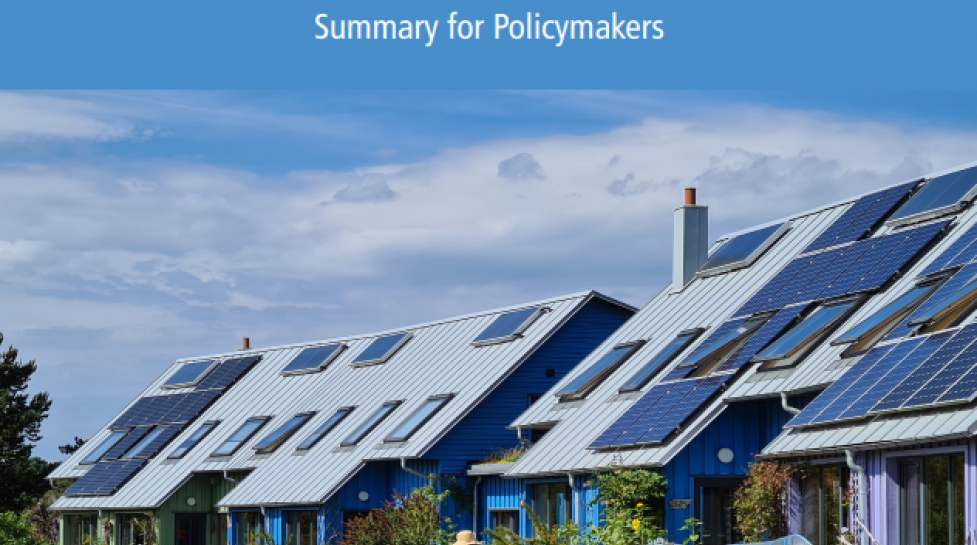On April 4, the United Nations Intergovernmental Panel on Climate Change (IPCC) issued its latest report.
On April 4, the United Nations Intergovernmental Panel on Climate Change (IPCC) issued its latest report.
This report, building on the scientific findings from previous assessments, specifically focuses on the climate solutions within our grasp. In the face of climate-driven events in our own backyard, we know that climate change can make us feel hopeless or fatalistic. But it’s in these solutions that we can find our collective path forward, ignite hope and spark change.
Spelling Out Solutions
According to the report, the solutions are clear. The global community must:
- Cut greenhouse gas emissions in half by 2030;
- Rapidly transition from fossil fuels to renewable sources;
- Stop clear-cutting forests and sustain the health of natural communities, which play a critical role in absorbing carbon and heat;
- Transform cities to reduce transportation emissions through walkability and electrified transit;
- Change behaviors to lead more efficient, climate-friendly lives; and
- Create an economy that limits extraction and generates less waste.
So there's the good news. We know what to do, and we have the ability to get it done.
Boulder’s Role
While climate change is a global challenge, the report makes clear that all sectors of society, levels of government and individuals have a role to play. In Boulder, we’re taking this responsibility seriously.
Consistent with the science and guidance from the IPCC, Boulder seeks to join the global community in reaching net zero carbon by 2035. This means that our community, working to achieve necessary changes at national and global scales, will reduce nearly all its carbon emissions over the next 13 years. For the small amount of emissions that remain, Boulder will achieve an equal amount of carbon removal by planting trees and improving soil health.
Shared Responsibility
How will we get there? In large part, it will depend on each of us doing what we can to drive systems change. Building on the community’s history of environmental action, and on the lessons learned in more than 20 years of climate work, now is the moment to ensure that the city’s climate action efforts achieve maximum impact locally and globally.
Moving forward, Boulder’s climate action must continue to reach beyond our city limits. We will have a much greater impact if we work collaboratively across our region on topics that we can influence like Xcel’s energy mix and regional planning.
We must take the time to ensure that our investments in climate and resilience create a more equitable community, so that those most responsible for emissions pay their fair share. At the same time, our work should benefit everyone in Boulder.
Behind all these efforts is you—our community. You’ve supported the city’s climate leadership for decades, and your contributions have made a difference. This year, as the community considers how to continue its investment in climate action, we invite you to make your voice heard and to share your ideas on how we can tackle this great, urgent challenge. As voters, you’ll have the chance to continue building on Boulder’s environmental legacy by extending the tax that funds the city’s climate work.
In addition to funding the city’s efforts, the climate requires each of us to take action in our own lives. The city has developed several guides to help you get started. From using less gas to thrifting for “new” clothes and calling your legislators, there are simple steps we all can take to join in this effort.
As the IPCC report makes clear, we have the know-how, tools and community support we need to address the crisis. Let’s get to work. There’s no time to waste.
